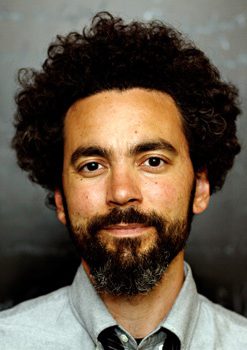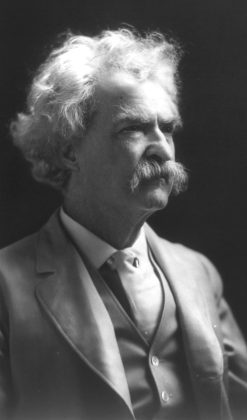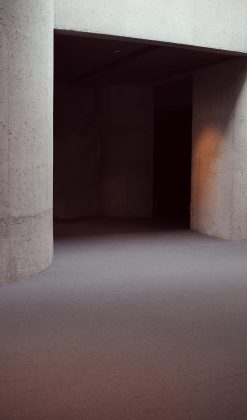
The following post is written by my friend Joshua Ryan Butler and it’s the first of three that he’ll write this week. Josh
has written a killer book titled The Skeletons in God’s Closet: The Mercy of Hell, the Surprise of Judgment, and the Hope of Holy War, and I’ve asked him to sum up some of the main points of his book on my blog. A massive thanks to Josh for being willing to do this. Take it away, Josh!
Many people fear hell is a skeleton in God’s closet, an underground torture chamber that makes God look like a sadistic torturer. But I’ve found many people have a caricature of what’s actually happening in the biblical story.
So I’d like to share a few paradigm shifts that have helped me over the years, to see this topic arising from the goodness of God rather than in spite of or contradiction to it.
The Story: Heaven and Earth
We get hell wrong because we get heaven and earth wrong. The following diagram contrasts the problematic way many people talk today with the gospel story.

In the problematic story, we live on earth now but one day we’ll die and God will either send us up to heaven or down to hell. Earth is nowhere in the eternal picture, and heaven and hell become co-equal counterparts competing for our destiny, while hell starts to look like an underground torture chamber.
In the gospel story, however, heaven’s primary counterpart is not hell, but earth. Heaven and earth show up paired together around 200 times in the same verse throughout Scripture (hell virtually never appears this way, paired together with heaven). Heaven and earth are created good by God, but they’re currently torn apart by the destructive wildfire of our sin.
There’s good news, however: heaven and earth are destined for reconciliation. God wants to bring creation back together from the things that tear it apart. God is on a mission to get the hell out of earth: to redeem his world from the destructive power of sin, death and hell.
This story arises because of God’s extravagant goodness (not in spite of it), towards his sin-struck, war-torn world. So when God banishes hell’s power from earth, where does it go?
The Location: Outside the City
Americans tend to picture hell underground (remember those Looney Tunes cartoons growing up?) But Jesus’ word for hell is Gehenna: an actual physical place just outside the city walls of Jerusalem. It was not a cavernous hole deep in the belly of the earth, but rather somewhere you could Mapquest.
And it had a dark and destructive history.
In the Old Testament, Gehenna was known as the Valley of Hinnom—and it was the epicenter of child sacrifice, one of Israel’s most detestable practices. The prophets railed on it as a signpost of how messed up and corrupt the capital of Jerusalem had become. (cf. Jeremiah 19:4-6; 32:32-35; 2 Chronicles 28:1-4; 33:3-9) The wicked valley became a symbol of the idolatry and injustice that had come to infect the people as a whole.
The hope of the prophets, however, was that God was going to return one day as the good King, to redeem Jerusalem and kick the idolatry and injustice back outside the city to where it came from . . . to Gehenna. Jesus draws on this tradition, depicting hell’s location as outside the city. When God establishes his good and righteous kingdom, he banishes the destructive power of sin, death and hell, away from the seat of power, influence and authority it has held for so long, outside his kingdom where it can no longer hurt or destroy.
This storyline arises, once again, because of the goodness of God (not in spite of it), and gives rise to a different purpose for hell than the caricature: not torture, but protection. God protects his kingdom by containing the destructive power of our unrepentant sin outside.
Torment vs. Torture
I think many folks get confused because the English words torment and torture sound similar—but they’re not the same thing. For example, I can be tormented by a headache, or someone can torture me by hitting me repeatedly over the head with a two-by-four. Both hurt my head, but in radically different ways: torment arises internally; torture is inflicted from the outside.
I can be tormented by my sin, and this is significantly different from God torturing me.
In Jesus’ famous parable of Lazarus and the rich man, for example, he describes the rich man “in agony in this flame.” Looks obviously like torture, right? This is one of two key passages usually pointed to for the torture image. But let’s look closer.
This word agony [odunomai] can also be translated “grief” or “anguish” and conveys a state of emotional turmoil rather than physical pain. For example, this word also shows up two other places in the New Testament: when Mary and Joseph realize their twelve-year-old son, Jesus, is missing and are searching “anxiously” (Luke 2:48); and when Paul is leaving Ephesus, as the church’s leaders realize they will never see him again, so they wrap their arms around him, weep, and are “grieved” (Acts 20:38).
Both of these passages depict not physical torture but emotional grief; not pain inflicted from the outside, but lament arising from the inside–when they realize something they love has been lost.
Similarly, the rich man in Jesus’ parable is in anguish, agony, grief–he’s invested his life in his riches, his greed and pride have come to define him, and a distress arises from within as he realizes in agony something he loves has been lost . . . his riches. They’ve been burned up in the fire.
God judges the rich man by taking the toys away that he refused to share.
And the loss is agony. God is not a passive bystander; God actively contains our recalcitrant rebellion against his kingdom. But the torment arises internally from our unrepentant resistance to the gracious goodness of God.
The Great Physician
The good news is that God wants us in his kingdom. Jesus’ question to us is not “Are you good enough to get into my kingdom?” It is, rather, “Will you let me heal you?” The arms of the Crucified One are stretched wide on the cross to embrace all who would come. Though we’ve all unleashed the wildfire of sin into God’s good world, Jesus has taken its destructive flame into himself on the cross, and risen victorious–quenching its death-dealing power and pursuing us with lavish grace to bring us home to God.
Jesus is the Great Physician, out to heal our world from hell’s wildfire flame. The question is not whether God wants us, that question has been answered on the cross. The question is whether we want God: whether we’re willing to receive his reconciling embrace, and enter in repentant submission under his kingdom reign.
If we refuse God’s lavish mercy, preferring our independence to worship, our autonomy to communion, life on our own terms to life under God, then God’s greatest punishment might be giving us what we want.
Joshua Ryan Butler is the author of The Skeletons in God’s Closet (free sample chapter, video trailer, and more here) and pastor of local & global outreach at Imago Dei Community (Portland, OR).











